Foreign nationals exploited: Government uncovers widespread labour violations in KwaZulu-Natal
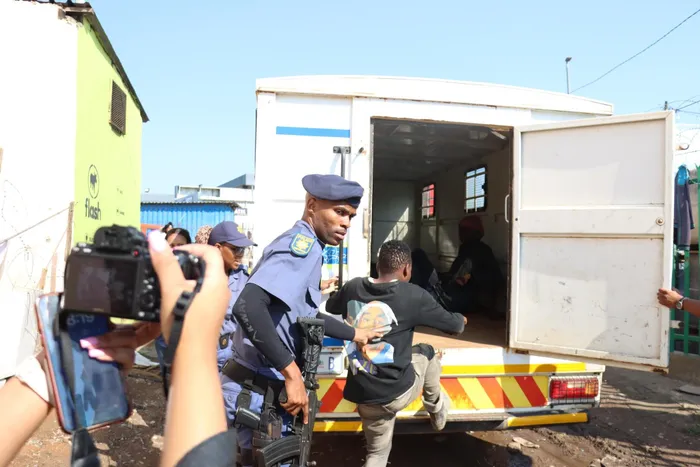
Ndwedwe inspections revealed foreign nationals exploited on farms and in shops, leading to government action against labour law non-compliance.
Image: Ndwedwe Local Municipality/ Facebook
A multidisciplinary blitz in Ndwedwe, under the Ilembe District in KwaZulu-Natal, revealed the exploitation of foreign nationals for cheap labour on local farms and in shops.
The blitz was led by Public Works and Infrastructure deputy minister Sihle Zikalala, as the District Development Model (DDM) champion of the Ilembe District, Labour and Employment deputy minister Jomo Sibiya, and Home Affairs deputy minister Njabulo Nzuza on Tuesday. Joining them was the South African Police Service and Ndwedwe Municipality mayor Sam Mfeka.
They checked compliance regarding the Basic Condition of Employment Act, Occupational Health and Safety, and Minimum Wage Act. They were also looking at the Unemployment Insurance Fund (UIF), Compensation Fund and other pieces of legislation, with the Home Affairs looking at the Immigration Act.
This follows numerous concerns raised during Zikalala’s DDM interactions in the district.
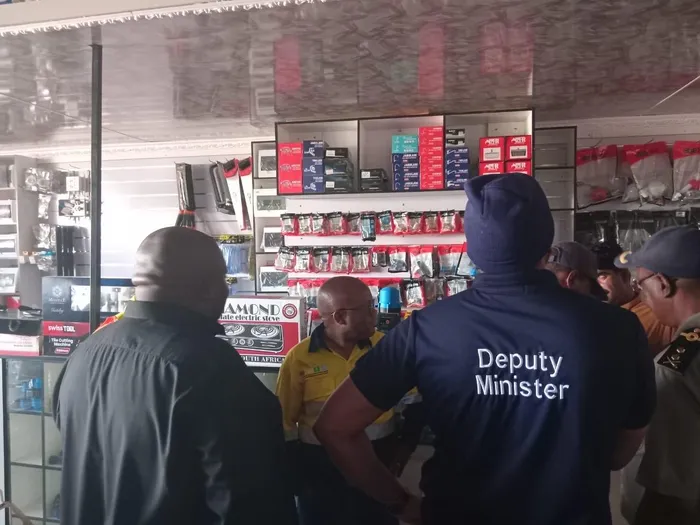
Government officials inspected compliance on local farms and shops in Ndwedwe, revealing illegal employment practices.
Image: Ndwedwe Local Municipality/ Facebook
Agricultural sector
On arrival, illegal foreign nationals scattered across the sugar-cane fields in the farms, jumping over fences in Bhamshela, trying to evade arrest.
Zikalala said they conducted inspections on three farms in Ward 3 to check whether the employees are employed legally and benefited according to South Africa’s labour laws.
“What was surprising is that the majority of people who are employed there are not from South Africa, and they’ve got no work permits. That’s why some of them have been taken and they are going to be deported,” Zikalala said.
Sibiya said they could not contain the foreigners who fled because the farming space was vast.
“We went to the offices of the employer and checked their level of compliance with other Acts. So far, we’ve realised that a number of his employees are not registered with UIF with the Compensation Fund. Also, there are some challenges with the minimum wage. Although some of their employees are paid at a minimum wage level, there are quite a lot of issues and gaps,” Sibiya said.
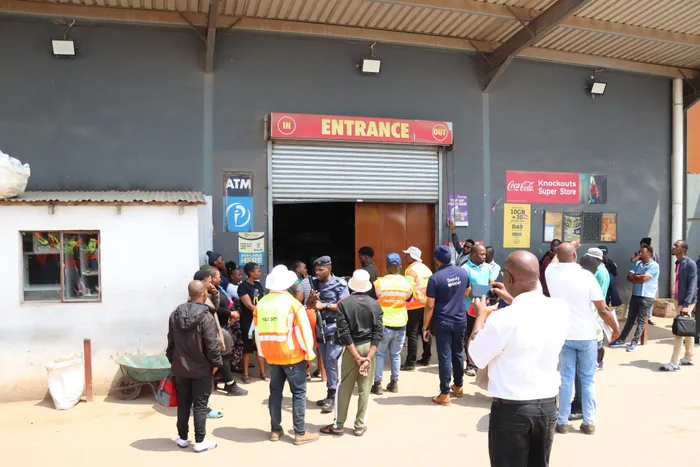
Inspectors examine working conditions and compliance with labour laws at a local shop in Bhamshela.
Image: Ndwedwe Local Municipality/ Facebook
Wholesale and retail sector
Zikalala said that in Bhamshela Centre, most shops and outlets were occupied by foreign nationals. This would not problematic if they have proper permits.
“We are verifying those permits, and if they are proven that they are not correct and not legitimate, we will have to take them and deport them,” Zikalala said.
“We’ve established already that those who are employed in this outlet, the majority of them, in fact, almost all of them, 26, are not registered. Two, they don’t have any form of benefit. Three, they are not earning according to the minimum wage, which is required.”
Zikalala said counterfeit goods were also sold there.
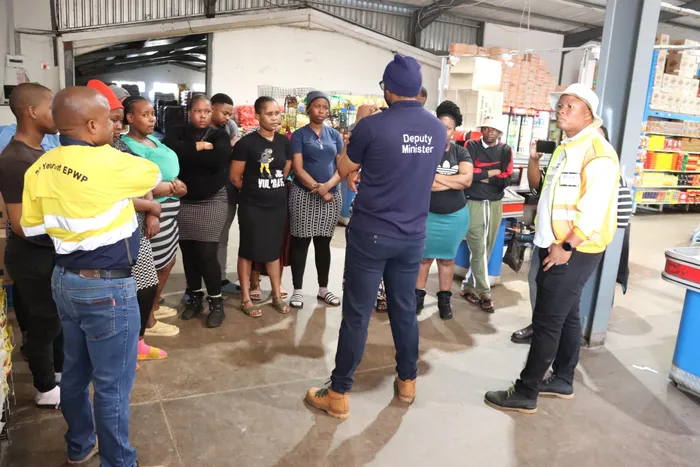
Officials uncovered illegal employment practices during inspections of farms and shops in Ndwedwe.
Image: Ndwedwe Local Municipality/ Facebook
Sibiya said they also found that unlabelled food was being sold, and the municipality removed some of that food from the shelves.
Additionally, the structural conditions of the buildings were concerning. One of them had issues with electric installations and narrow passages that posed fire risks.
“We are going to close some of these shops because they don’t meet the legal standards and the Occupational Health and Safety standards that we have put in place as a country,” Sibiya said.
He said several unlicensed gas cylinders were found on the site.
“We’ve seen quite a lot of plastic material with no fire extinguishers or fire extinguishers that are not serviced, which is very risky in terms of fire,” Sibiya said.
He said that in one of the shops, employees were not registered with the UIF or the Compensation Fund. They earned about R2,000 monthly, which is lower than the minimum wage.
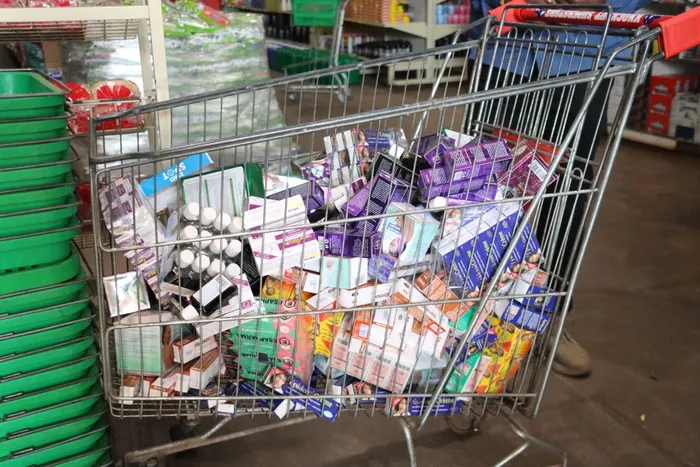
Officials removed unlabelled food items and other products from shelves during inspections.
Image: Ndwedwe Local Municipality/ Facebook
Mayor Mfeka said: “I am very happy that the ministers have supported us so that we can fight this scourge of selling rotten food, selling things that are not allowed to be sold. Likewise, with many people who do not have permits, which is the campaign we are working on as the Ndwedwe Municipality, those who do not have permits to be in South Africa, let’s deport them and send them back to their countries.”
thobeka.ngema@inl.co.za